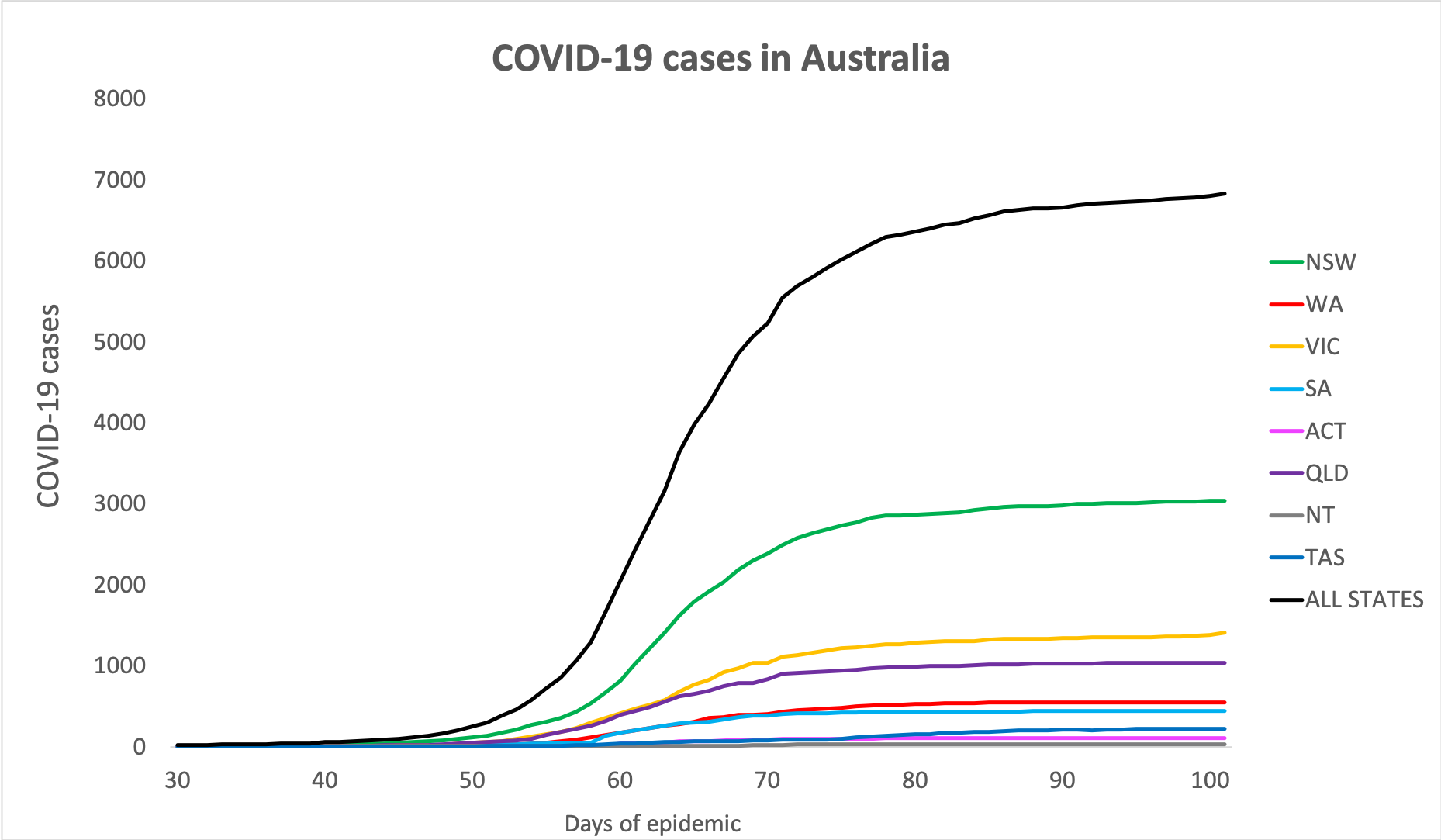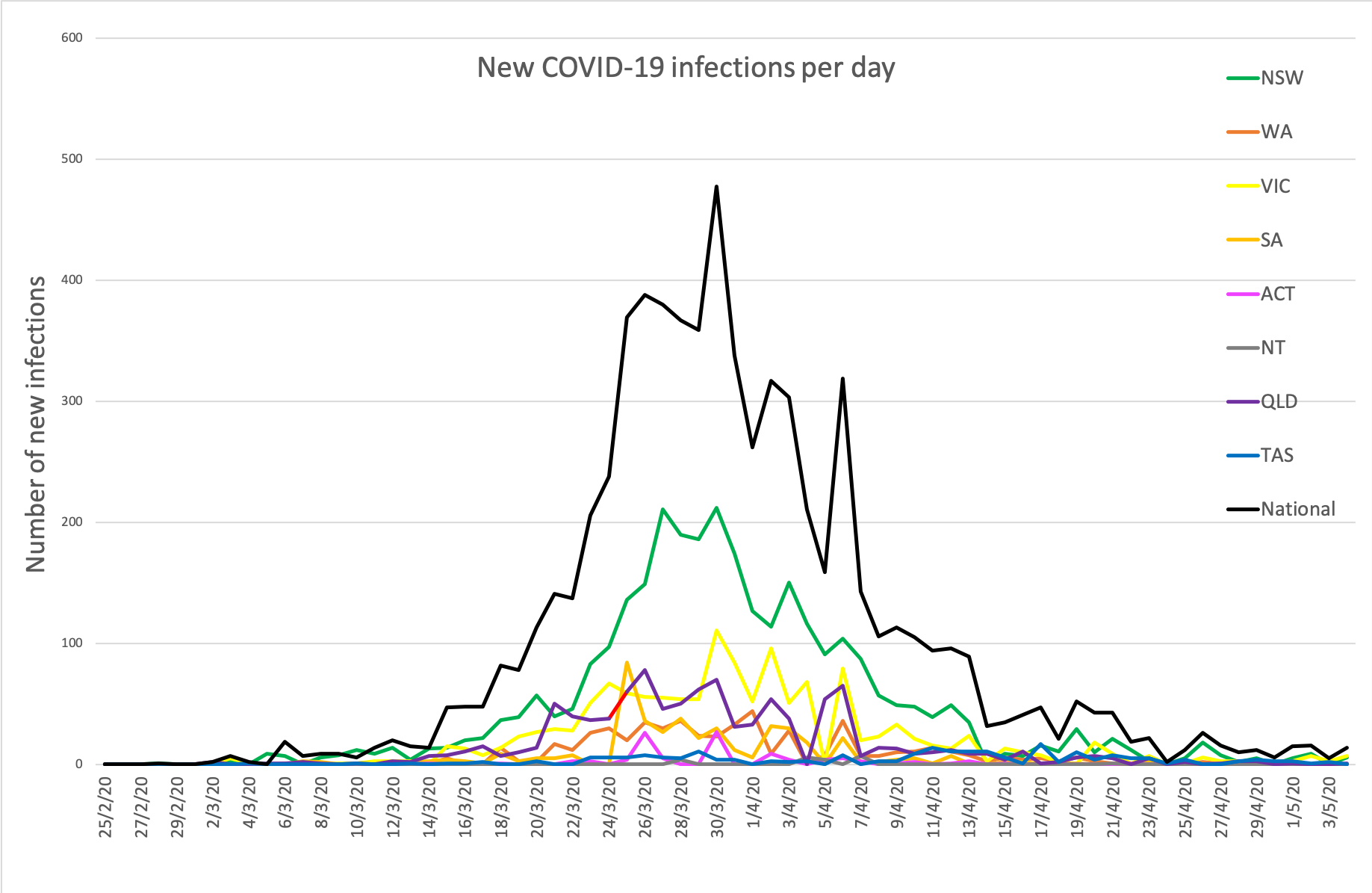The US CDC has issued advice on what to do if your pet contracts COVID-19, which includes such gems as 'don't wash them in disinfectant or hydrogen peroxide'.
It’s a slow Tuesday afternoon on The Medical Republic‘s live COVID-19 blog.
Got any tips, comments or feedback? Email me at bianca@biancanogrady.com.
The latest
- The US CDC has advised against washing COVID-19-infected pets in disinfectant or bleach. They won’t like it.
- Spike in burns cases with isolation camping and garden clean-ups.
- Two studies suggest no increased risk of COVID-19 with ACE inhibitors or ARBs.
- This will no doubt come as a relief to any pets who might be unfortunate enough to contract COVID-19; the US Centers for Disease Control have advised against washing an infected pet in chemical disinfectants, alcohol or hydrogen peroxide (unless you’re going for that bleached rabid look).
This learned institution has just issued advice on what to do if your pet tests positive for SARS-CoV-2. It does happen – a tiger at Bronx Zoo tested positive early in the pandemic, so that mad tiger fella on Netflix better be all over this stuff.
The symptoms of COVID-19 in animals are pretty similar to humans: fever, cough, difficulty breathing, lethargy, sneezing, runny nose etc.
Firstly, the advice is to isolate your pet from other pets, so no more nose-to-bum action for Fido at the local dog park. They should also be quarantined at home, which will be welcome news for all felines that hate moving from their favourite spot in the sun but the death knell for dogs’ sanity. The CDC recommends keeping your sick pet in a dedicated sick room, which we can assume they will absolutely HATE and will guarantee their owners won’t get a wink of sleep due to the whining and scratching.
And of course, see a vet.
- What is it about isolation that makes people want to set things on fire? The Sydney Local Health District has pleaded with people to be sensible with accelerants and naked flames, after they tended to 20 cases of burns caused by people throwing petrol or methylated spirits onto barbecues just in the last month (and they usually see about 90 cases a year).
The Concord Burns Unit nurse unit manager Chris Parker speculated in a Facebook post that home isolation was leading to more camping in backyards and garden clean-ups, both of which seem to involve an enthusiasm for hearty blazes.
- With the new understanding that SARS-CoV-2 infects lung cells via the angiotensin-converting enzyme 2 receptor, there have been concerns that people taking anti-hypertensives targeting that receptor might be at increased risk of infection or severe disease.
However two studies published this week in the New England Journal of Medicine offer some reassurance that this is not the case.
The first was a retrospective cohort study using the electronic health records of 12,594 people tested for COVID-19 in New York, just over one-third of whom had a history of hypertension.
Nearly 47% of all participants, and nearly 60% of those with hypertension, tested positive for COVID-19. However when researchers looked at the likelihood of a positive test or of severe COVID-19 illness based on what class of antihypertensives participants were taking, they found no substantial differences – defined as an effect size greater than 10 percentage points – across all the medication classes.
A second population-based case-control study looked at the medications and clinical profiles of 6272 patients with severe COVID-19 and more than 30,000 age-, sex-, and municipality-matched controls in the Lombardy region of Italy.
This showed that use of ACE inhibitors and angiotension II receptor blockers – as well as other antihypertensive and non-antihypertensive drugs – was more common among the COVID-19 patients than controls. However use of these drugs was not associated with an increased risk of COVID-19.
“Thus, our results do not provide evidence of an independent relationship between RAAS [renin–angiotensin–aldosterone system] blockers and the susceptibility to COVID-19 in humans,” the authors wrote.
However they did note that patients with COVID-19 had a higher baseline prevalence of cardiovascular disease – hypertension, coronary heart disease, heart failure and chronic kidney disease – which confirmed observations from other studies that patients who get COVID-19 generally have poorer health than the rest of the population.
- Here are today’s confirmed COVID-19 infection figures from around Australia, to 9pm yesterday:
National – 6825 (up 24) with 95 deaths and 5859 listed as recovered
ACT – 107
NSW – 3033
NT – 29
QLD – 1038
SA – 438
TAS – 223
VIC – 1406
WA – 551


Disclaimer: The content on the Medical Republic COVID-19 blog is independently created by Medical Republic without input from Boehringer Ingelheim Pty Ltd. The views, information, or opinions expressed on the Medical Republic COVID-19 blog are Medical Republic’s own and do not necessarily represent those of Boehringer Ingelheim Pty Ltd. Boehringer Ingelheim Pty Ltd is not responsible for and does not verify the accuracy of any content on the Medical Republic COVID-19 blog.


